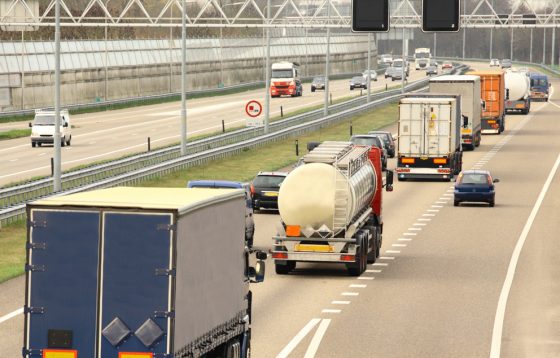Hungarian lorry drivers win pay claim against Dutch transport firm


A Dutch transport company has been ordered to give 10 Hungarian lorry drivers back pay which could run into hundreds of thousands of euros for failing to pay them a salary in line with Dutch requirements.
Erp-based Van den Bosch had argued the drivers were employed by its Hungarian subsidiary and should, therefore, be paid in line with Hungarian rates. But appeal court judges have ruled that the Netherlands, not Hungary was their primary place of work and that they should be paid in line with the Dutch pay and conditions deal.
Trade union federation FNV started an investigation into the company’s salary strategy 10 years ago and launched the legal case in 2014, at which point the Hungarian company sacked the drivers. In 2015, the FNV won the initial case, only to lose it on appeal in 2017. The case then went to the Supreme Court and was then referred back to the court of appeal, which has now given its final ruling, upholding the initial court decision.
‘This ruling is not only beneficial to the 10 Hungarian drivers. Thousands of other drivers are being systematically underpaid and exploited,’ said FNV spokesman Edwin Atema. ‘Many more drivers can use this ruling to demand the pay they are entitled to.’
Principle
‘This could be a major question of principle,’ Amsterdam university lecturer Hanneke Bennaars told broadcaster NOS. ‘There have been few verdicts in this area and at this level, so it could have far reaching consequences for the transport sector, which employs a lot of foreign drivers.’
Groningen University labour law specialist Beryl ter Haar told NOS that these sort of constructions are used to keep pay rates low.
‘This is a very clearly formulated ruling, which explains clearly what the drivers’ “country of work” actually is,’ she said. ‘But simply because it has been so well explained… I can see companies changing the way they operate. For example, it is important that the HR manager is located in Hungary, so they could easily be moved there.’
The real solution to the problem lies with the EU, she said. ‘But as long as economic benefits outweigh those of the workers, it will be difficult.’
The FNV has several pending and ongoing cases against both transport companies and government inspectors. Some cases involve criminal offences such as forgery and labour exploitation, the union federation said.
Thank you for donating to DutchNews.nl.
We could not provide the Dutch News service, and keep it free of charge, without the generous support of our readers. Your donations allow us to report on issues you tell us matter, and provide you with a summary of the most important Dutch news each day.
Make a donation